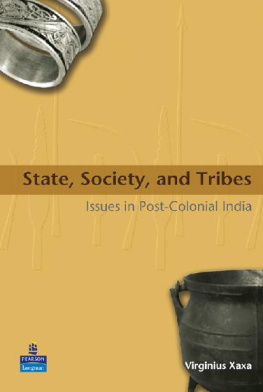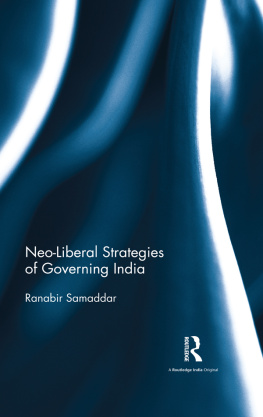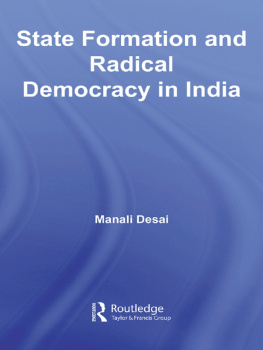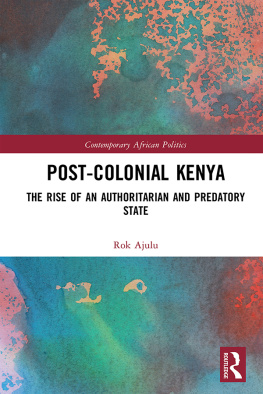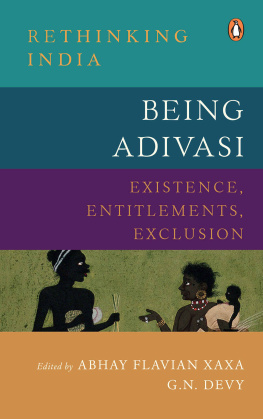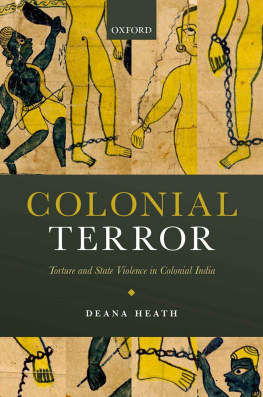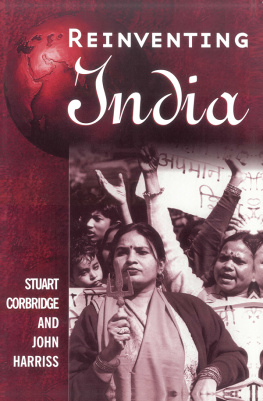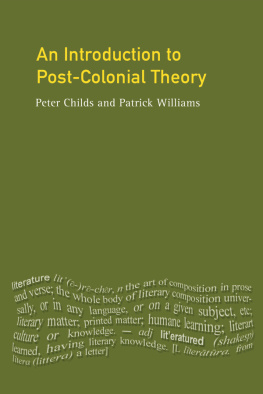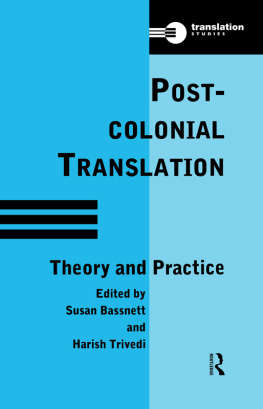State, Society, and Tribes:
Issues in Post-Colonial India
Virginius Xaxa
An imprint of Pearson Education
Contents
About the Author
Virginius Xaxa is Professor of sociology at the Department of Sociology, Delhi School of Economics, University of Delhi, and Rajiv Gandhi Chair in Contemporary Studies, North-Eastern Hill University, Shillong. He obtained his Ph. D. from the Indian Institute of Technology, Kanpur. He was a Post-Doctoral Fellow at the Ecole des Hautes Etudes en Science Sociale, Paris, the recipient of Commonwealth Academic Staff Fellowship, SOAS, University of London, and a Fulbright Visiting Lecturer at the University of California, Santa Cruz, USA. Besides numerous papers in national and international journals, he has published two books: Tea Plantation Labour in India (with Sharit K. Bhowmik and M.A. Kalam, 1996) and Economic Dualism and Structure of Class: A Study of Plantation and Peasant Settings in North Bengal (1997) . His research interests are in the areas of rural sociology, tribal studies, and ethnicity and religious identity.
To my wife Chameli
Preface and Acknowledgements
My interest in the studies of tribes emerged more from my association with the Department of Sociology at the Delhi School of Economics and its intellectual and social environment than out of my own previous research interests, which were in the field of agrarian and development studies. My intellectual engagement with the tribal question in India was generated by conversations and discussions with colleagues on issues and problems concerning students belonging to the scheduled castes and scheduled tribes in the department and the university. This volume is an outcome of that engagement. Needless to say, I owe an intellectual debt to my colleagues in the department. I am particularly grateful to Professor Veena Das for inviting me to join The Oxford Indian Companion to Sociology and Social Anthropology placing before me a field that would eventually offer me an intellectual journey. I am also grateful to Professors Andre Bteille and J. P. S. Uberoi for their keen interest in my work. Interacting and engaging with them has been a great learning experience and a source of much intellectual enrichment. I would like to acknowledge my gratitude to Professor Anand Chakravarty for his faith and confidence in me and to Professor Rajni Palriwala and Dr Rita Brara for reading and commenting on some of the chapters.
Outside the department, I am most grateful to Professor Sharit Bhowmik, Dr Ritambhara Hebbar, Dr P. D. Khera and Dr Ashley Tellis. Professor Bhowmik, formerly at the Department of Sociology, Delhi School of Economics and now at TISS, Mumbai, has been a source of great support all through my career. Ritambhara Hebbar, a faculty member at TISS and an ex-student of mine read many of the papers included in this volume and provided useful comments and suggestions. Dr P. D. Khera shared with me his rich and invaluable ideas and insights in many conversations with him on the tribal question in India. Dr Tellis was generous in helping me read the proof. I am grateful to Pearson Education India and especially to Debjani M. Dutta for her keen interest in the publication of this volume.
This endeavour would not have come to fruition but for the support that I have received from my family. I am deeply indebted to my son Aashish, who, despite my considerable negligence toward him as a father, has been more than patient with me. Chameli, my wife, has been a constant source of support. In spite of her ill-health, she took upon herself many of the responsibilities that were mine to enable me to carry on with this work. My indebtedness to her could not be expressed in words. I dedicate this volume to her.
I wish to thank the following for permission to reproduce the articles in this volume:
Economic and Political Weekly for Transformation of Tribes in India: Terms of Discourse XXXIV (24), 1999; Tribes as Indigenous People of India XXXIV (51), 1999; Protective Discrimination: Why Scheduled Tribes Lag Behind Scheduled Castes XXXVI (29), 2001; and Politics of Language, Religion and Identity XL (13), 2004.
Indian Journal of Gender Studies for Women and Gender in the Study of Tribes in India, 11:3 (2004).
Sage Publications for Empowerment of Tribes in Debal K. Singharoy (ed.), Social Development and the Empowerment of Marginalized (New Delhi: 2001).
Rawat Publications for Reading Tribes in the Light of Citizenship Rights in M.N. Karna (ed.), Democracy, Pluralism and Conflict (Jaipur: 2005).
Chapter 1
Introduction
Differences have been the hallmark of Indian society. These differences emerged as the result of various long and complex historical processes. The marks of differences have been diverse and varied, but the major ones have been located primarily around those of caste, language, religion, and region. To these principal marks of difference, the new one of tribe was added during the colonial period. Before the colonial period, the use of a generic term to describe tribal peoples was not in existence.
Some anthropologists have described the phenomena of caste and tribe as colonial constructions in the sense that the character of these groups was solidified by the British through processes of classification and enumeration. Bteille argues that this is truer of tribes than it is of castes. He holds that there was already a complex and sophisticated literature on the caste system before the adoption of British initiatives. Further, the use of the category of caste was not confined to the intelligentsia only but was also a part of the thinking of the common man much before the advent of the British. However, hardly anything corresponding to this existed in the case of those we know as tribes today. It is on this count that the category of tribe has been talked about as a colonial construction (Singh 1993; Bteille 1993). This statement is not meant to convey the claim that groups so identified did not have a distinct identity of their own. Indeed, not only did these groups see and identify themselves as being different, they were also seen as being different by others. However, the general category of tribe was absent. There were also no tribal writers or scholars to reflect on and write about the nature of tribes. Discussions of the nature and significance of tribe as a distinct category had to wait until the coming of colonial rule. The consciousness of the distinct and separate identity of all the tribes in India taken as a whole is a part of modern consciousness, brought into being by the colonial state and confirmed by its successor after independence. Ray does talk of a category of people in Indian history now generally identified as tribes. These were the janas with an egalitarian form of social organization as against those with a jati system of social organization (Ray 1972). Other scholars caution against such a view. They point out that any attempt to identify jana with present-day tribals is not without difficulty. They say that the category is not only amorphous but also overlaps with that of non-tribe. Bteille argues that the distinction between jana and jati must have been less clear in ancient times than the corresponding distinction between tribe and caste today (Bteille 1986; Singh 1993; Roy Burman 1994).
Colonial administrators used the term tribe to describe people who were heterogeneous in physical and linguistic traits, demographic size, ecological conditions of living, regions inhabited, stages of social formation, and levels of acculturation and development. The need for such a category was necessitated by a concern to subsume the enormous diversity into neat and meaningful categories for both classificatory purposes and administrative convenience. Hence, although tribe as a category and as a point of reference may be treated as a colonial construction, the image and meaning underlying the category was far from being a colonial construction. (Indeed, there was much similarity between the connotations of the term tribe and the ideas and images constructed by Indian civilization of groups and communities that came to be designated as tribes during the colonial period.) The term tribe since the sixteenth century has referred to groups and/or communities living under primitive and barbarous conditions. Sanskritic and Hindu religious texts and traditions describe and depicte tribes in a similar fashion. Bara takes the point even further when he states that the pre-colonial depiction of the tribal people of India as dasyus, daityas, rakshasas, and nishadas, when juxtaposed with mid-nineteenth-century Western racial concepts, advanced the aspect of bestiality associated with tribes (Bara 2002: 125).


